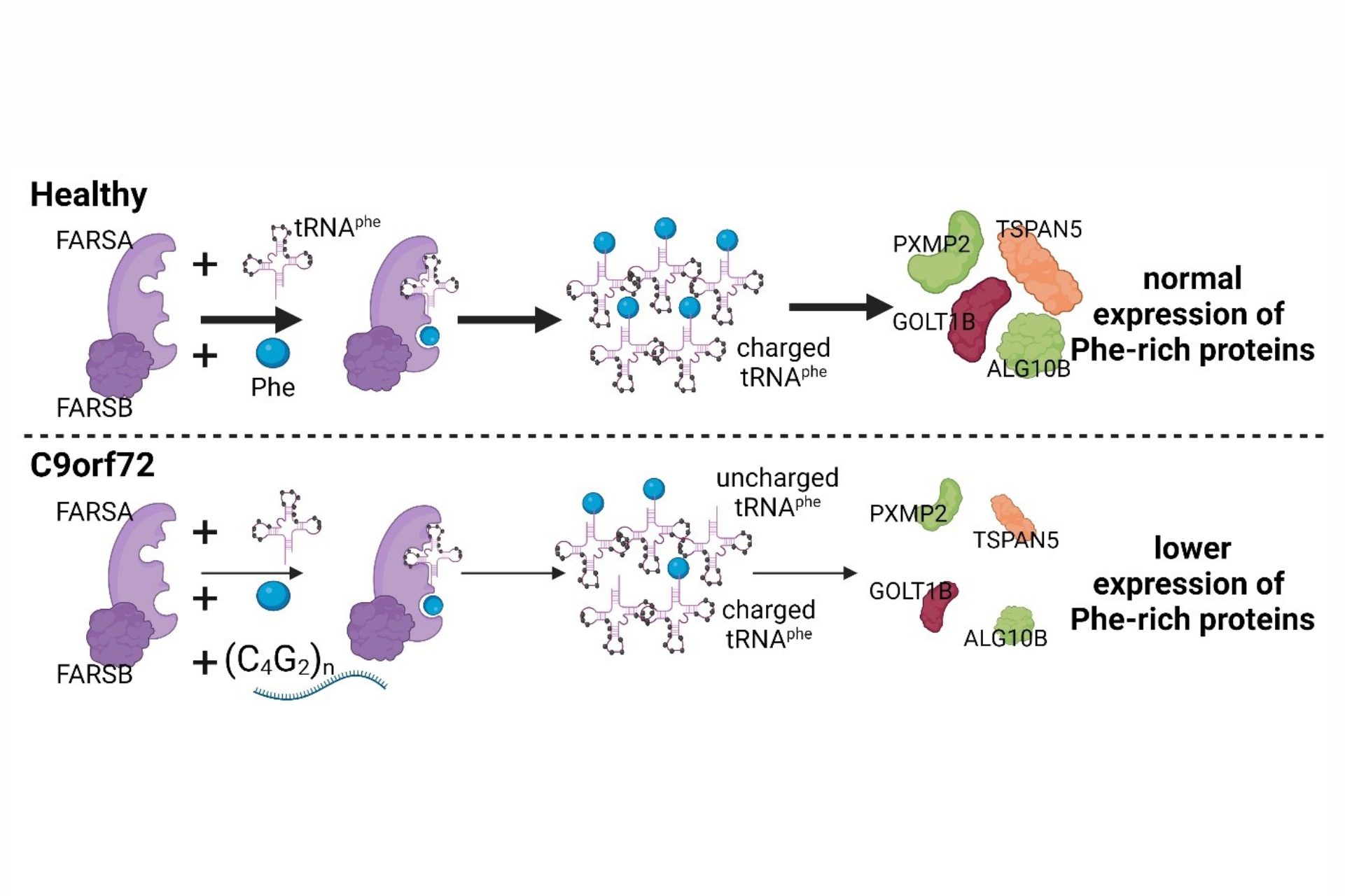
New molecular mechanism of C9orf72 mutation linked to amyotrophic lateral sclerosis and frontotemporal dementia
- Post by: Ana Mitrović
- 9.February, 2024
- Comments off
Researchers from the team led by Prof. Dr. Boris Rogelj, along with young researcher Urša Čerček and former colleague Dr. Mirjana Malnar, have published a study in the prestigious journal Nature Communications unveiling novel molecular mechanisms associated with the mutation in the C9orf72 gene, implicated in the development of Amyotrophic Lateral Sclerosis (ALS) and Frontotemporal Dementia (FTD).
This mutation impacts the normal functioning of nerve cells in the brains of patients, likely due to the abnormal formation of protein clusters, hindering their regular operation. The research introduces, for the first time, the aberrant interaction of antisense C4G2 RNA repeats with the FARS protein, leading to a reduction in the attachment of the amino acid phenylalanine to the transfer molecule tRNA, thereby disrupting protein synthesis.
Conducted through international collaboration, the study provides significant insights into the molecular foundations of ALS and FTD. The researchers optimized a method for observing RNA-protein interactions throughout the entire cell, representing an innovation in this research field.
Furthermore, they identified reduced expression of phenylalanine-rich proteins in patients, which could serve as a diagnostic marker for quickly determining the type of disease. The FARS protein emerges as a potential therapeutic target for treating patients with this mutation. The research underscores the need for further investigations and highlights a newly developed methodology that will contribute to understanding and addressing these complex diseases.
Link to the article: https://www.nature.com/articles/s41467-023-41511-3

